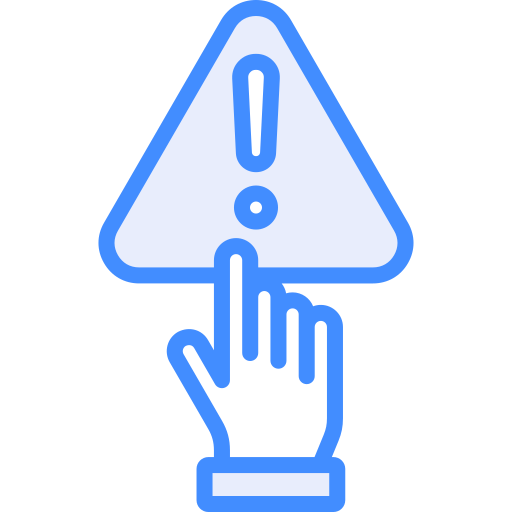Payday Lenders in North Carolina
Payday Loan Laws

Loan Terms and Conditions
prohibited
Whenever you need emergency financing, you can get loans online from a legit lending companies. Check your rates and terms before applying for cash advance online.
History of North Carolina Payday Loans
State Resources

How to file a complaint
- ADDRESS
- 9001 Mail Service Center, Raleigh, NC 27699
- 919-716-6000
- Website
North Carolina Loan Debt Relief
How to Get out of Loan Debt?
Types of Quick Loans in North Carolina
Alternatives to Payday Loans in North Carolina
Personal Loans
Personal loans are a popular choice among borrowers in North Carolina, offering unsecured financing for various purposes such as home improvements, debt consolidation, and unexpected expenses. They have fixed interest rates and predictable monthly payments. Lenders in North Carolina may provide more favorable terms and lower interest rates to borrowers with excellent credit, while individuals with poor credit may face higher interest rates and stricter eligibility criteria.
Bridge Loans
Bridge loans serve as a short-term financing solution for many individuals in North Carolina who are looking to purchase a new property while still owning their current one. These loans are particularly useful when conventional loans are not readily available or when borrowers need immediate access to funds. Lenders typically require an equity interest in the property and may limit the loan-to-value ratio to around 80%. To qualify for a bridge loan, borrowers must demonstrate their ability to close the sale or secure a conventional loan within a specific timeframe, typically four months or less. Bridge loans, categorized as specialty financing, are intended to be repaid within a relatively short period, usually ranging from one to three years.
Home Equity Loans
Home equity loans in North Carolina enable homeowners to leverage the equity in their properties to access funds. These secured loans come with a fixed interest rate and predetermined repayment period, utilizing the home as collateral. Home equity loans can be utilized for various purposes, such as covering unexpected expenses, consolidating debt, or making home improvements. While they may offer potential tax benefits, it's important to note that defaulting on these loans could result in foreclosure if repayment obligations are not met.
Bad Credit Loans in North Carolina
Individuals in North Carolina with poor credit or limited credit history may have access to bad credit loans, which are tailored to high-risk borrowers. These loans typically come with higher interest rates and additional fees compared to traditional loans. Collateral or a co-signer may be required to mitigate the higher risk associated with these borrowers. Despite the challenges, bad credit loans can be utilized for debt consolidation, home repairs, or unexpected expenses, providing an opportunity to rebuild creditworthiness over time.
North Carolina Small Business Loans
Small business loan options in North Carolina:
- SBA loans: The SBA offers a variety of loan programs, including 7(a) loans, 504 loans, and microloans, to help small businesses access funding for things like, such as working capital, equipment purchases, and real estate investments.
- Golden LEAF Foundation: The Golden LEAF Foundation offers various loan programs and grants to support economic development and job creation in rural and economically distressed areas of North Carolina.
- North Carolina Rural Center Loan Programs: The North Carolina Rural Center offers various loan programs, such as the Small Business Loan Program and Microenterprise Loan Program, specifically designed to support businesses in rural areas of the state.
- Business Lines of Credit: Lines of credit provide businesses with a revolving credit line that can be used as needed. They offer flexibility and convenience, allowing businesses to access funds whenever necessary and repay only the amount used.
- Equipment Financing: Equipment financing enables businesses to purchase or lease equipment required for their operations. Lenders provide funding specifically for equipment, using the equipment itself as collateral.
VA loans in North Carolina
VA loans are a valuable financing option available to veterans and active-duty service members in North Carolina. These loans, guaranteed by the U.S. Department of Veterans Affairs, are offered by private lenders and come with various advantages. VA loans often require little to no down payment, making homeownership more attainable for those who may face financial constraints. They also typically do not require mortgage insurance and often come with lower interest rates. The flexible credit requirements of VA loans enhance eligibility for veterans and active-duty service members, ensuring accessibility to financing opportunities.
North Carolina Student Loans
Many options are available to North Carolina students to help finance their college education. These options include:
- Federal Student Loans: Low-interest loans backed by the federal government that can be used to pay for education expenses.
- North Carolina State Education Assistance Authority (NCSEAA): NCSEAA offers various state-sponsored student loan programs, including the North Carolina Student Assist Loan (NC Student Assist) and the North Carolina Parent Assist Loan (NC Parent Assist).
- College Foundation, Inc. (CFI): CFI is a nonprofit organization that provides student loans and resources to North Carolina students and families. They offer the NC Parent Loan for undergraduate and graduate students, as well as private loan options.
- Private Student Loans: Loans offered by private lenders that can be used to pay for education expenses, with interest rates and terms that can vary widely.
North Carolina Income Information
United States Census Bureau. “Poverty in the United States: 2021.” Accessed on May 12, 2023.
United States Census Bureau. U.S. Census Bureau QuickFacts: North Carolina. Accessed on May 12, 2023.
North Carolina Payday Lender Complaints
| Company Name | Count |
| Big Picture Loans, LLC | 27 |
| Delbert Services | 24 |
| LDF Holdings, LLC | 17 |
| CASHCALL, INC. | 14 |
| Populus Financial Group, Inc. (F/K/A Ace Cash Express) | 10 |
| Mobiloans, LLC | 11 |
| Total Complaints | 278 |
Consumer Financial Protection Bureau. Consumer Complaint Database. Accessed on May 12, 2023.
Most Common Issues
| Complaint type | Count |
| Charged Unexpected fees or interest | 132 |
| Struggling to pay loan | 28 |
| Can’t contact lender | 25 |
| Problem with payoff process | 12 |
| Can’t stop charges to bank account | 11 |
What are the main reasons Americans apply for payday cash advance online or offline
Payday loans are typically used for nonnegotiable everyday expenses like your rent, utilities, and groceries. Per data reported by Pewtrust, the percentage of reasons described below
| Reason | Share |
| Regular Expenses (Utilities, car payment) | 53% |
| Unexpected emergency/expense | 16% |
| Rent/Mortgage | 10% |
| Something Special | 8% |
| Other | 5% |
| Did not answer | 2% |
Payday Lenders by City
- Charlotte
- Raleigh
- Greensboro
- Durham
- Winston-Salem
- Fayetteville
- Cary
- Wilmington
- High Point
- Concord
- Asheville
- Greenville
- Gastonia
- Jacksonville
- Chapel Hill
- Huntersville
- Apex
- Burlington
- Rocky Mount
- Kannapolis
- Mooresville
- Wilson
- Wake Forest
- Hickory
- Holly Springs
- Indian Trail
- Salisbury
- Monroe
- Goldsboro
- Fuquay-Varina


